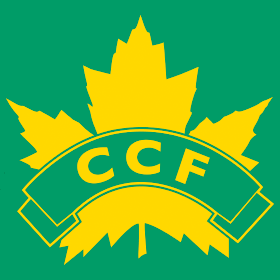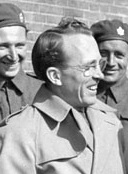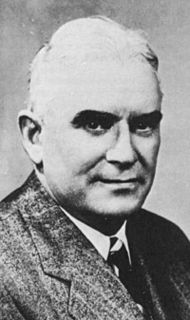| |||||||||||||||||||||||||||||||||||||||||||||
59 seats in the Legislative Assembly of Saskatchewan 30 seats needed for a majority | |||||||||||||||||||||||||||||||||||||||||||||
| |||||||||||||||||||||||||||||||||||||||||||||
| |||||||||||||||||||||||||||||||||||||||||||||
The Saskatchewan general election of 1964 was the fifteenth provincial election held in the Canadian province of Saskatchewan. It was held on April 22, 1964, to elect members of the Legislative Assembly of Saskatchewan.

The provinces and territories of Canada are the sub-national governments within the geographical areas of Canada under the authority of the Canadian Constitution. In the 1867 Canadian Confederation, three provinces of British North America—New Brunswick, Nova Scotia, and the Province of Canada —were united to form a federated colony, becoming a sovereign nation in the next century. Over its history, Canada's international borders have changed several times, and the country has grown from the original four provinces to the current ten provinces and three territories. Together, the provinces and territories make up the world's second-largest country by area.

Saskatchewan is a prairie and boreal province in western Canada, the only province without natural borders. It has an area of 651,900 square kilometres (251,700 sq mi), nearly 10 percent of which is fresh water, composed mostly of rivers, reservoirs, and the province's 100,000 lakes.

The Legislative Assembly of Saskatchewan is one of two components of the Legislature of Saskatchewan, the other being the Queen of Canada in Right of Saskatchewan,. The legislature has been unicameral since its establishment; there has never been a provincial upper house.
Contents
- Election campaign
- Results
- Ranking
- Riding results
- Northwestern Saskatchewan
- Northeastern Saskatchewan
- West Central Saskatchewan
- East Central Saskatchewan
- Southwest Saskatchewan
- Southeast Saskatchewan
- Moose Jaw and Saskatoon
- Regina
- See also
- References
The Co-operative Commonwealth Federation (CCF) government of Premier Woodrow Lloyd was defeated by the Liberal Party, led by Ross Thatcher. The CCF had governed Saskatchewan since the 1944 election under the leadership (until December 1961) of Tommy Douglas.

Woodrow Stanley Lloyd was a Canadian politician and educator. Born in Saskatchewan in 1913, he became a teacher in the early 1930s. He worked as a teacher and school principal until 1944, and was involved with the Saskatchewan Teachers' Federation, eventually becoming its president.
Wilbert Ross Thatcher, was the ninth Premier of Saskatchewan, Canada, serving from May 2, 1964 to June 30, 1971.
By 1964 the provincial Social Credit Party had collapsed, nominating only two candidates. In another morale hit, the federal Social Credit Party endorsed the Liberals during the election. While the CCF held on to nearly all of their vote from the previous election and only trailed the Liberals by 0.1%, most of the shift in Social Credit support went to the Liberals and proved decisive in helping to push Thatcher to a majority government.
The Social Credit Party of Saskatchewan was a political party in the Canadian province of Saskatchewan that promoted social credit economic theories from the mid-1930s to the mid-1970s.

The Social Credit Party of Canada, colloquially known as the Socreds, was a conservative-populist political party in Canada that promoted social credit theories of monetary reform. It was the federal wing of the Canadian social credit movement.
The Progressive Conservative Party also picked up some support at the expense of Social Credit but won only one seat in the legislature, that of leader Martin Pederson.

The Progressive Conservative Party of Saskatchewan is a right-of-centre political party in the Canadian province of Saskatchewan. Prior to 1942, it was known as the Conservative Party of Saskatchewan. Members are commonly known as Tories.
Martin Pederson was a Canadian farmer, business owner and politician, who was leader of the Progressive Conservative Party of Saskatchewan from 1958 to 1968.











